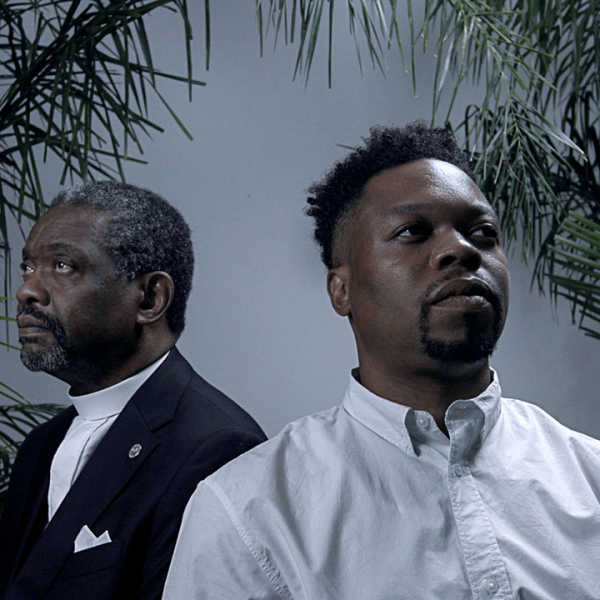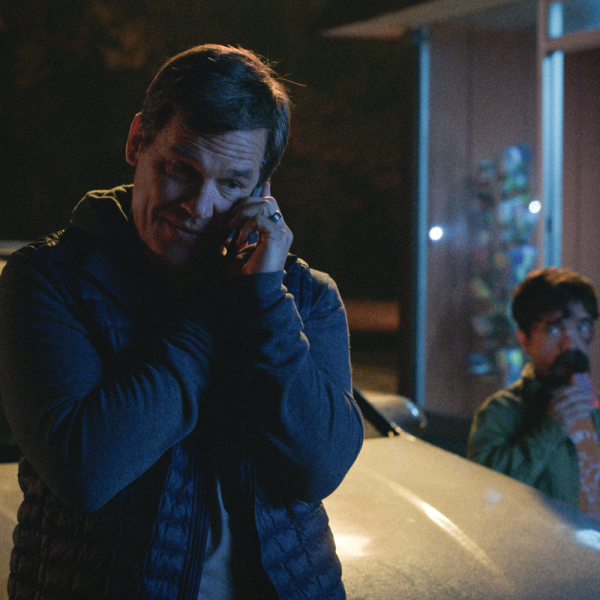A plane crashes somewhere deep within the Amazon rainforest, screaming down upon the land of Brazil’s (fictional) Iruaté people like a missive from God. By some miracle, a young white girl named Rebecca — later identified as the daughter of a local missionary — has managed to survive the devastation that killed her mother and everyone else aboard the aircraft. Still buckled into her seat after the fuselage exploded around her, Rebecca would have been eaten alive by the ants if not for the tribesman who rescued her from the rubble and carried the girl back to Christian civilization.
That fateful act of kindness will prove to be one of the few truly selfless deeds in Pia Marais’ “Transamazonia,” a potent but emotionally diffuse coming-of-age drama in which everything — even faith, even love — has the potential to be as exploitative as the deforestation that continues to eat away at the soul of the Amazon.
Broadly inspired by true events, Marais’ film derives much of its richness from Rebecca’s dual nature as both an agent and a victim of that colonial predation. On the one hand, she matures into a willing tool of her dad’s tent revivals, as Lawrence Byrne (played by performance artist Jeremy Xido) has successfully leveraged his daughter’s miracle into a major selling point of his ministry by the time this story begins in earnest nine years after the crash.
On the other hand, Rebecca (“News of the World” star Helena Zengel) has been powerless to resist being re-baptized as the scarred but alabaster face of an evangelical movement that seeks to impose a new belief system upon the Iruaté. She’s a healer who brings a sincere if questionable measure of comfort to those in need (as we see in the careful and cringe-worthy scene where Rebecca and Lawrence make a spectacle of restoring a congregant’s ability to walk), but she’s also someone whose own identity has been overwritten in Jesus’ name, and she likewise has her own reasons for questioning the word of a holy father whose love is conditioned upon the acceptance of a certain gospel.
Cleaving much closer to the work of Claire Denis than it does to the Sundance movies that have become synonymous with coming-of-age stories, “Transamazonia” is far more interested in atmosphere (thick and sweltering) than it is in plot (scarce and elliptical). The film is only sustained by the frisson of its interpersonal dynamics, which are as dense and alive as the rainforest itself, even if they remain similarly impenetrable for most of the movie.
Absent any evident psychology and leveraging her slight German accent for the sense of foreignness that it confers upon her character (even in the context of her own family), Zengel’s performance is a small marvel of self-discovery. Her Rebecca is a believer and a skeptic all at once, the love she has for her father never the least bit incompatible with her growing concerns about his mission.
It’s an uneasy balance that Marais is able to sustain for the entire length of her fourth narrative feature, as the South African-born writer-director — returning here with her first scripted work since 2013’s “Layla Fourie” — subverts the dominant tendency of a genre defined by stories about young people who are growing into their power. In one crucial respect, Rebecca effectively does the reverse. Like most teens, Rebecca will slowly begin to question what she’s been conditioned to think of herself. Unlike most teens, what she’s been conditioned to think is that she’s a living vessel of God’s divinity.
We sense that she’s known the truth for a while now, and that she’s hidden it from even her own waking mind, lest the logic of her entire life in the Amazon start to unravel. But the all too human principles behind her father’s mission will soon come into clearer view than ever before, not because Rebecca falls in love with a local boy (there’s nothing of that sort here, besides the furtive looks of an unspoken crush), but rather because her dad inserts himself into the middle of an increasingly violent standoff between the Iruaté and the loggers who are illegally trying to destroy their land. Terrified that the conflict will undo all of his work to “civilize” the indigenous population, Lawrence makes a deal with the person heading the deforestation effort: If Rebecca can heal the man’s comatose wife, the loggers will beg off. The stakes of the whole “miracle girl” schtick have never been higher, and the reckless gambit will soon threaten to prove the limits of the love that Lawrence has promised to provide.
Marais isn’t shy about her feelings towards the impact that evangelical missionary work has exerted upon the Amazon (“It occurred to me that these churches were somehow accelerating the destruction of the surrounding rainforest,” she observes in the film’s press notes, a sentiment that becomes self-evident on screen), but “Transamazonia” isn’t especially interested in the low-hanging fruit of attacking colonial evangelism, and Lawrence is by no means some two-bit charlatan who’s in it for the money, as there doesn’t seem like there’s all that much of it to be made here. On the contrary, the guy is a true believer, and Xido — compellingly elusive from the moment he appears — makes great sport of trying to pinpoint the crux of the preacher’s faith.
Snake-like and sincere in equal measure, Lawrence is both a loving father and a showman performing that role — a man of God and a lustful opportunist. For all of this movie’s febrile languor, there’s a sharp energy to the sequence in which he flirts with a nurse who comes to stay at his house (at Lawrence’s overeager insistence), as if his mortal desires might reveal something to us that his daughter has never been in a position to see. He often yells at people to have faith in a way that conveys how dependent his soul has become on the ones he collects for his God, only for that fire to be tempered by the various scenes in which Lawrence and Rebecca soothe each other by singing Christian hymns like “Will the Circle Be Unbroken?”

The lyrics to that song pose a question that “Transamazonia” gradually begins to ask at the pitch of a primal scream, Lim Giong’s cacophonous score whirring over the soundtrack like an airplane that’s flying too low to the ground. The intensity of the rift that forms between Rebecca and Lawrence proves overwhelmingly loud for a movie that seldom dares to speak its name, and Marais shares in her characters’ struggles to strike a livable balance between the feelings she wants to explore and the circumstances that pressure those feelings into action.
She arranges the film in a way that makes the situation between the loggers and the Iruaté easy to understand but impossible to measure (the life or death conflict is often as hazy as the nightmares that plague Rebecca in lieu of dramatic action), and that nebulousness in turn makes it difficult to appreciate the finer points of how Lawrence has thrust his daughter into the middle of the conflict. That “Transamazonia” hinges on a predictable but necessary plot twist gives the impression that Marais is making up for lost time — that she’s scrambling to remold her sweaty mood piece back into the intimate father-daughter story it was from the start.
This is ultimately a film about the belief systems that are forced upon us, and one that takes great pains to justify its focus on a white family in the middle of an Amazonian turf war (Marais worked closely with the Assurini people of the Trocará Indigenous Territory to ensure that her film respected them more than Lawrence’s ministry does, and the entire tribe has received an associate producer credit for their contribution). Lawrence’s spiritual crisis isn’t privileged above the threat the logger’s pose to the Iruaté people so much as it’s an immediate extension of it, and “Transamazonia” is its best when it’s willing to frame the two in clear relief.
“In the end,” Lawrence asks, “what do any of us have if we don’t have faith?” If this shapeless but well-textured movie resolves as more than the sum of its parts, that’s only because Marais eventually pushes Rebecca to answer that question — clearly, and on her own terms.
Grade: B-
“Transamazonia” screened at the 2024 New York Film Festival. It is currently seeking U.S. distribution.
Want to stay up to date on IndieWire’s film reviews and critical thoughts? Subscribe here to our newly launched newsletter, In Review by David Ehrlich, in which our Chief Film Critic and Head Reviews Editor rounds up the best reviews, streaming picks, and offers some new musings, all only available to subscribers.







